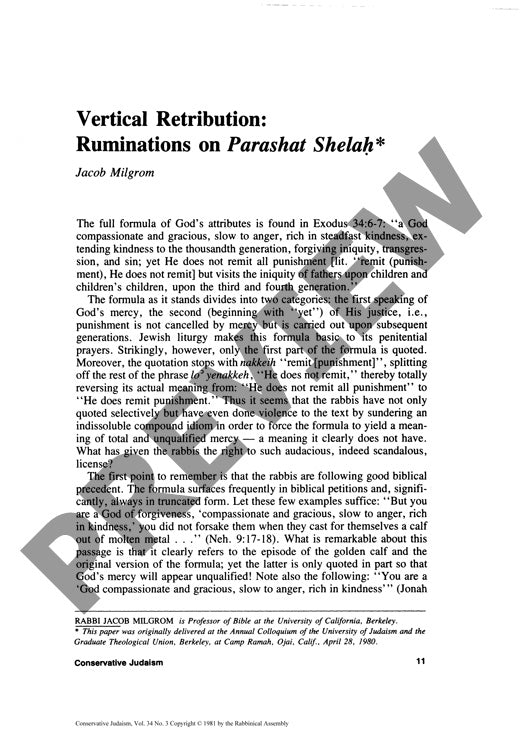Vertical Retribution Ruminations on Para
Couldn't load pickup availability
The theological tension between divine mercy and intergenerational punishment, crystallized in Exodus 34:6-7's divine attributes formula, reveals a sophisticated biblical approach to reconciliation that transcends simple forgiveness. Through exegetical analysis of biblical texts, Near Eastern parallels, and rabbinic interpretations, this research uncovers how Jewish liturgical tradition systematically omitted retribution clauses when appealing to divine mercy—following established scriptural precedent rather than arbitrary editing. Close textual analysis of key Hebrew terms, particularly *salah* (pardon) and *hesed* (steadfast kindness), combined with historical-critical examination, demonstrates that biblical authors understood divine pardon as a mechanism for covenant maintenance. The Hebrew root *salah*, connected to its Akkadian cognate *salahu* ("to rain upon") and Arabic *sulh* (reconciliation), signifies divine-human reconciliation rather than mere absolution. Moses' interventions following the golden calf incident and scout episode sought not forgiveness but assurance of continued covenantal relationship. While vertical retribution remains a divine prerogative, it operates within a framework where God's commitment to covenant fidelity (*hesed*) guarantees Israel's ultimate inheritance of the Promised Land, though perhaps through future generations rather than immediate recipients.

More Information
-
Physical Description
-
Publication Information
Published 1981
ISBN
-
Publication Credits
Jacob Milgrom

